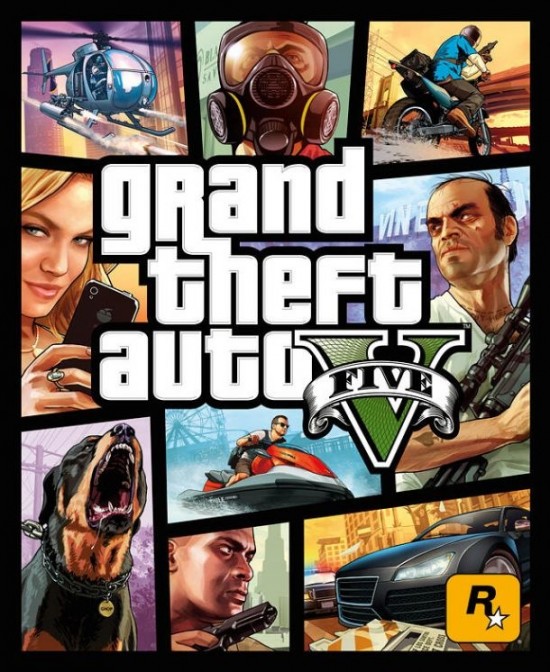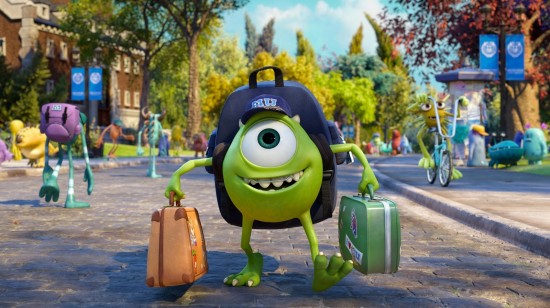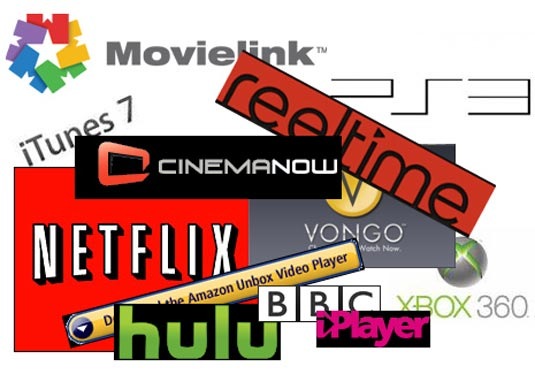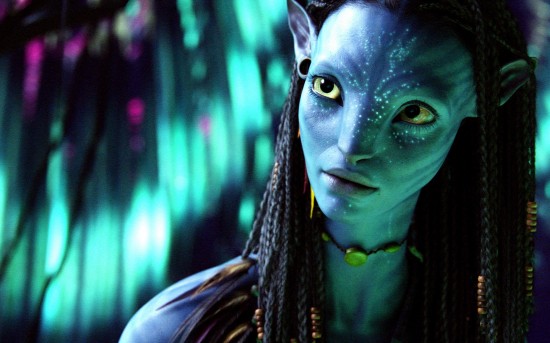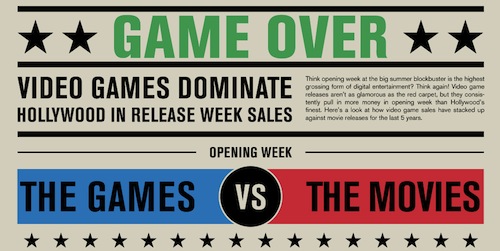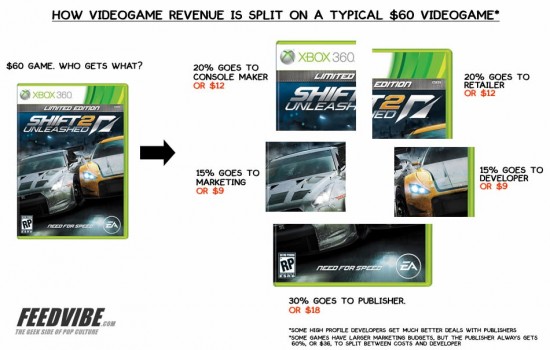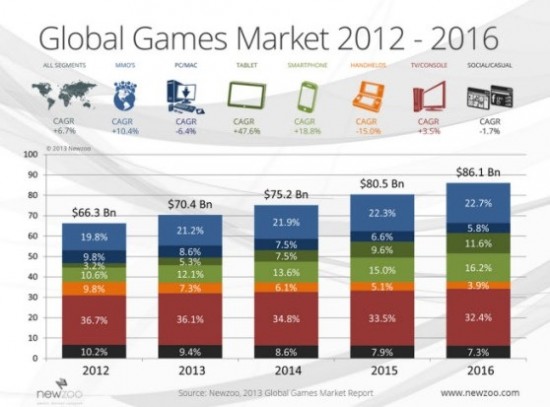If 'GTA V' Were A Movie, It Would've Sold Enough Tickets To Be The #453 Biggest Movie Of All Time
If Grand Theft Auto V were a theatrically-released movie instead of a video game, enough people would have bought tickets to earn only $227.4 million at the global box office. That box office number would be just enough to make it only the #453 largest grossing film ever worldwide – just under The Green Hornet, The Heat, Mr. Bean's Holiday and Space Jam.
I'll admit, I'm trolling video gamers a bit with this comparison — But I got your attention right? That said, the math is real:
29 million gamers bought GTAV, times that by the current movie ticket average of $7.84 a ticket (believe it or not, it is actually that low) equals a $227.4 million dollar gross at the box office.
If you've gotten this far (five sentences in) and didn't just jump directly to the comments to post how I'm an idiot after reading only the headline or first sentence – Thank you smart reader! This actually isn't the video game hit piece you might expect from the headline. The report on GTA V's sales last week sent me on a journey to see how that, and the video game industry as a whole, compares to the movie business. Please join me in taking a fair and balanced look at the real numbers, perceived value and how its unfair to compare two entertainment industries in simple terms.
Take Two announced earlier this week that 29 million copies of Grand Theft Auto V have been sold since the launch on September 17th 2013. This destroys the record for the fastest-selling entertainment release of any kind.
Take Two doesn't, however, give any indication of the gross sales amount, but it was reported that the game grossed over $800 million in retail sales during the first 24 hours after launch and crossed over $1 billion in the first three days. While normal copies of the game cost $59,99 retail, they also produced a $149.99 Collector's Edition and a $79.99 special edition — so its hard to say just how much they have grossed at this time. Over $1b in sales in just days is a huge number, and that will grow..
So how does this compare to the movie world? Are video games really that much bigger than the movie industry? Its more complex than a simple yes or no.
To give you some perspective from the movie world, the closest thing to a video game would be a computer animated feature film. The average Pixar film takes about five years to develop and produce, and costs around $250 million (including prints and advertising). One newspaper estimated that Take Two and Rockstar spent around $265 million in developing and releasing GTA V (a number that has been repeated on countless blogs without fact checking or response from the companies), although the real number is likely higher.
Pixar's latest film Monsters University grossed $742,855,463 worldwide, which amounts to something like 80 million tickets. So while the amount of people that bought tickets to MU was almost three times that of GTA V buyers, the theatrical gross is less than half.
So games make more money than movies... well, if you just want to compare box office to video game discs sold. But if you want to look at the whole picture, its not the same story.
Consumers spend an estimated $18 billion watching movies at home, and this is on the rise. MU hits home video this week, so I'll use Brave as an example for home video: The 2012 film sold 2.4 million units on Blu-ray, and 5.8 million units on DVD, for $151.3 million total.
Digital distribution now accounts for nearly 30 percent of that $18 billion domestic home-video market. Digital and streaming sales/rental figures are not available to the public. (Studios don't want anyone to know how much they make.) We do know that Bridesmaids grossed $40 million domestically from VOD with over seven million orders in just over four months of release. Ten years ago Pixar films would sell double to triple the amount of DVDs alone. For example, 2003's Finding Nemo sold over 40 million DVDs in the first three years on store shelves. So we're sure studios are selling unreported millions of copies on streaming/digital/vod, adding millions to the pot.
And studios also make a bunch from licensing out their movies for television broadcast. Depending on the movie, a premium pay-TV cable network will pay as high as $30 million for a box office hit, with the average being closer to one third of that number. The biggest network television licensing deal was for the first two Harry Potter films on ABC, a ten year deal costing $70 million a film.
So from what I can see in the limited numbers available to the public, a movie can make upwards of $350 million in the home video and television market combined. The largest grossing movie of all time, Avatar, grossed almost $2.8 billion worldwide, selling about 340 million tickets. The James Cameron film sold a reported 11 million units on DVD and almost 7 million units on Blu-ray, for a total nearing $350 million in home video revenue (not including VOD/streaming...etc).
And some big films spawn theme park lands and attractions, something that has yet to really happen in the video game space. Insiders estimate Avatar Land could cost as much as $500 million once licensing rights and consulting fees to Cameron are factored in. Cameron and Fox are also set to receive a share of the Avatar merchandise sold in the park.
Continue reading on the next page and we'll talk about merchandising, perception of value, a few things people don't normally think about when you see big movie and video game numbers in blog posts and news stories, the bottom line numbers of how many video games are sold vs. movies watched, and why the media is obsessed with comparing the two industries, and more.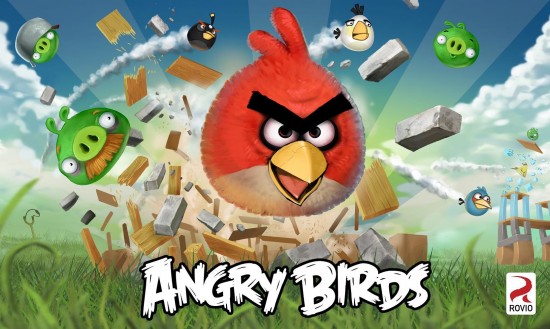
And we haven't even begun to talk merchandising. Pixar's Cars series made over $8 billion in global retail sales before they released the sequel. In comparison, Rovio's Angry Birds, one of the hottest brands in video games today, earned $195 million in merchandising in 2012.
And of course there is the perception of value:
I often times see blogs and sometimes newspapers bragging about the numbers of the video game industry. The number you see thrown around most recently is that video game sales in 2012 amounted to a whopping $63 billion. You'll see some outlets comparing that figure to the movie industry, which has a global box office total of $34.7 billion in 2012. I've even seen an article claiming that GTA 5 made more than the music industry alone. Of course, these numbers aren't as simple as they look.
Here are a few things you don't normally think about when you see the numbers:
Much like how film companies only receive a percentage of of the various box office, video game companies only get a cut of that $60 game. The infographic above from Feedvibe shows almost 50% of that msrp goes to the developer & publisher after the split with retailers, console makers and marketing costs.
So at the end of the day, which is bigger — the film industry or the video game business?
Which had more sales? We've already seen that more people see a big movie in theaters than purchase the biggest video game release of all time, and many more end up watching movies at home. Movie watching is passive while gaming is interactive, so it seems likely there will always be more people watching films than playing games.Which made more money? Market research firm IBISWorld claims the movie industry generated revenue of $126.8 billion in 2012. Meanwhile Newzoo, another market research firm, claims the global game market made $66.3 billion in 2012 — about half that of the film industry.
I'm not sure where either of these firms are getting their money figures as they seem extremely high, but they are all we have to go on when looking at the industries from a birds eye view. You can also see in the above chart that the global games market is getting bigger, and is expected to grow to $86.1 billion in 2016, still not even close to this year's film number (which is also growing, but at a slower rate). But who knows, maybe someday the game industry will surpass the film industry in revenue.
The bottom line is that the movie and video game industries are very different in a many number of ways, including business monetization. Its almost like comparing apples to cheese — yes, people eat both but they are completely different in every other way. So why does the media continue to try to force comparisons to try to prove that one is bigger or better than the other? Why do we care if one medium is bigger or better than another medium? Are we trying to justify the importance of the entertainment we are receiving from these industries?

